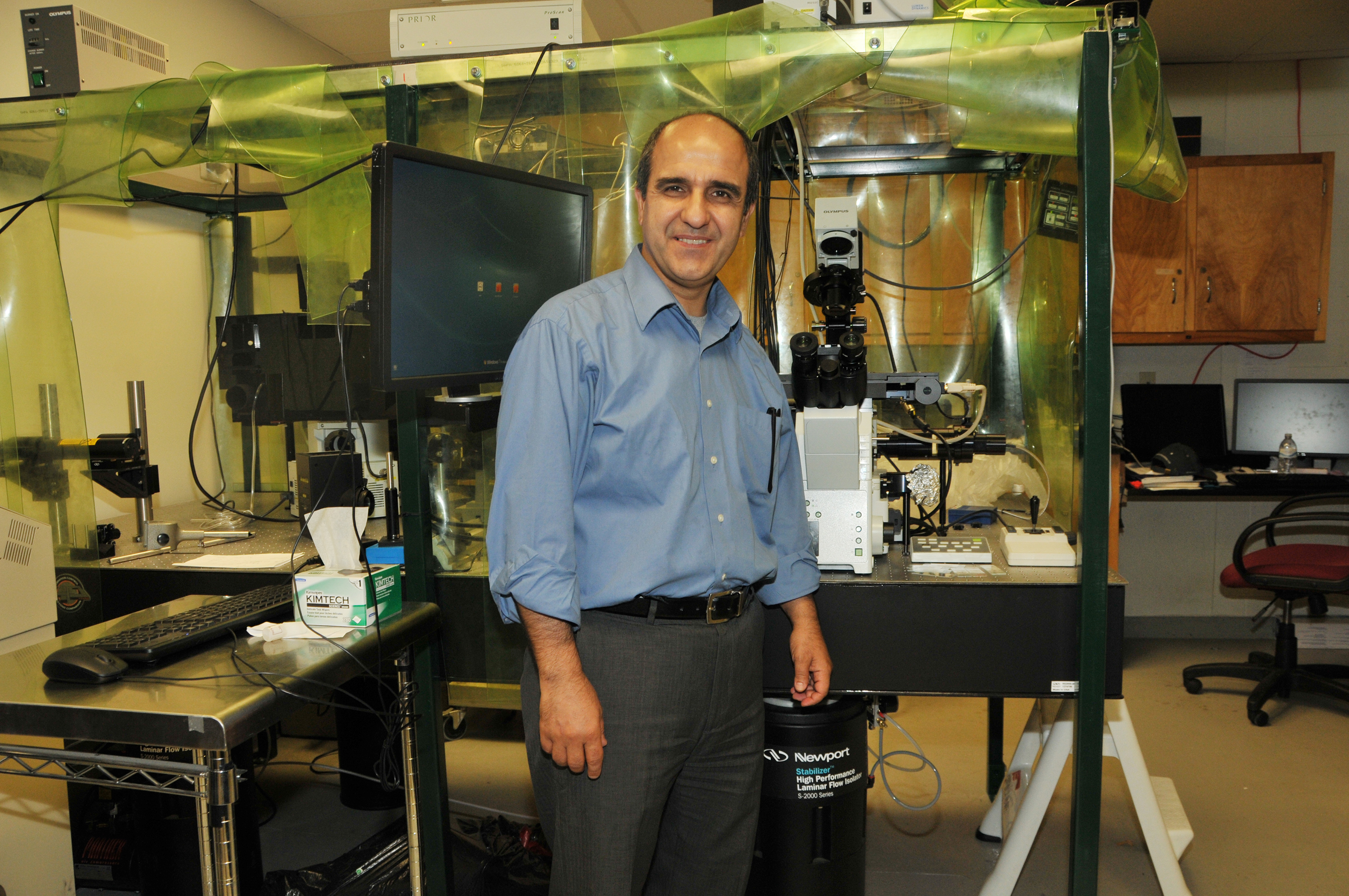
Dr. Boukari awarded NSF research grant
A Delaware State University researcher has received a three-year, almost $750,000 federal research grant to join forces with Alabama State University (ASU), another HBCU, to study engineered nanoparticles and develop and apply diverse complementary laser-based techniques for analyzing their impact on ecosystems.
Dr. Hacene Boukari, Professor of Optics and the principal investigator of the grant, said that Del State will be the lead institution in the project and will collaborate with ASU on the work.
Advances in the synthesis of diverse engineered nanoparticles continue to open new applications in various fields, including the fabrication of novel functional nanocomposites, drug delivery, and biomedicines. However, it has also raised concerns about the impact such advancements can have our ecosystems.
The goal to better understand such impact has led to a need for the design, development and application of laser-based techniques to improve the accuracy of detection of the nanoparticles, to probe and measure their interaction with their environment, and to assess their physical, chemical, and biological properties.
That is where Delaware State University comes in.
“This project demonstrates the strength we have in DSU’s Optics Center where we use optics-based methods to investigate the properties of diverse materials,” Dr. Boukari said.
The researchers will use solutions and gels made of alginate as a model environment where the engineered nanoparticles (such as metal) and the biological nanoparticles (such as DNA or protein) will be embedded and investigated, utilizing diverse spectroscopy and imaging techniques.
“We are studying engineered nanoparticles and biological nanoparticles to see how they are impacting their host environment adversely, to see if they alter it in some way, and if so, to understand the physical, chemical and biological mechanisms that induce these alterations,” Dr. Boukari said.
If successful in such analysis, Del State researchers will be able to take the optical-based techniques they have developed to analyze ultrafine particles, and share those methods with other researchers and engineers in the nanotechnology and nanoscience world who would benefit from such advancements.

